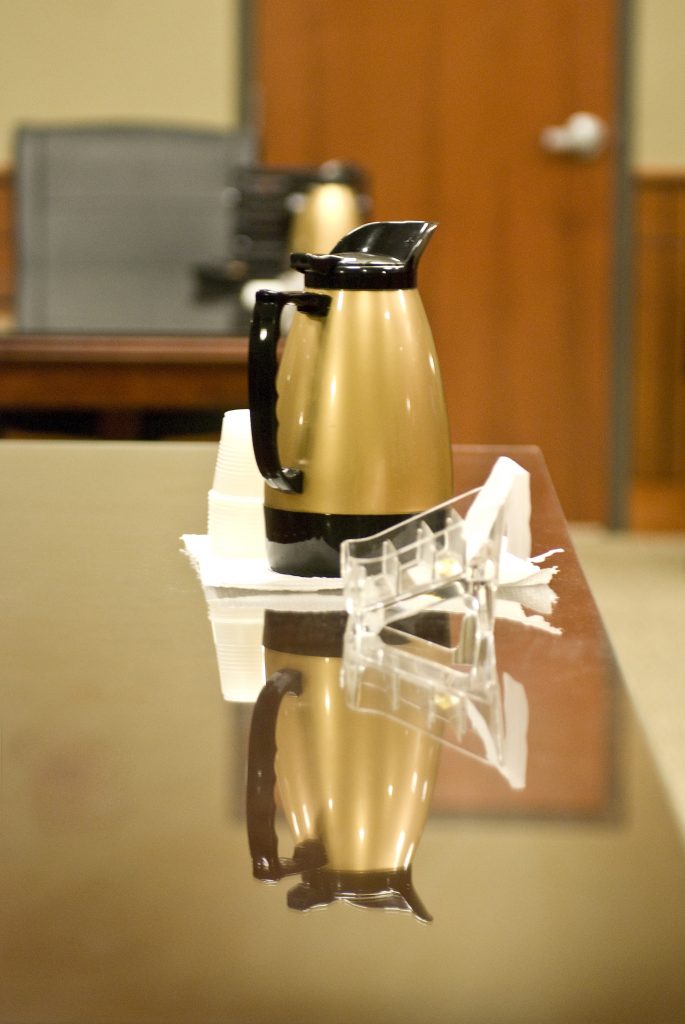 Law enforcement agencies throughout the country have been under intense scrutiny over the past few years because of controversial policies and procedures. However, one agency in Louisiana, the Sheriff’s Office of St. John the Baptist Parish, faced another type of scrutiny surrounding the termination of a high-ranking official. The termination resulted in a lawsuit based on federal and state law.
Law enforcement agencies throughout the country have been under intense scrutiny over the past few years because of controversial policies and procedures. However, one agency in Louisiana, the Sheriff’s Office of St. John the Baptist Parish, faced another type of scrutiny surrounding the termination of a high-ranking official. The termination resulted in a lawsuit based on federal and state law.
The controversy dates back to 2013 when the Plaintiff, Tregg Wilson, was employed by the Sheriff’s Office as Chief Deputy. In May of that year, Mr. Wilson discovered that there was automatic and constant video and audio surveillance in the office interrogation rooms. Mr. Wilson believed that this might present some legal problems for the Sheriff’s Office, so he reported the issue to the Sheriff, Mike Tregre. Mr. Wilson also reported the issue to Internal Affairs, as well as the District Attorney. In turn, the District Attorney asked the Louisiana State Police to investigate the issue. The State Police ultimately determined that there were no legal issues with regard to the surveillance in the interrogation rooms. Shortly thereafter, Mr. Wilson was terminated from his employment with the Sheriff’s Office.
In the subsequent lawsuit filed in federal court, Mr. Wilson claimed that his termination from employment was a First Amendment retaliation violation under federal law, as well as a violation of various provisions of state law. See Nixon v. City of Houston, 511 F.3d 494 (5th Cir. 2007). The Sheriff, as the defendant, moved for summary judgment, a legal process whereby a party asks a trial court to make a legal determination because there are no disputes with regards to the facts of the case. The Trial Court granted summary judgment in favor of the Sheriff and Mr. Wilson appealed.
 Louisiana Personal Injury Lawyer Blog
Louisiana Personal Injury Lawyer Blog


 When the government takes privately owned property to be used for the benefit of the public, it is called an expropriation. Federal and state law prohibit the government from taking private property without compensating the owner. The Louisiana Constitution provides that property shall not be taken or damaged by the State except for a public purpose and with just compensation paid to the owner of the private property. A landowner whose property is expropriated by the State is to be compensated so that he remains in the equivalent financial position he enjoyed before the taking. The following case provides a concrete example of such a situation.
When the government takes privately owned property to be used for the benefit of the public, it is called an expropriation. Federal and state law prohibit the government from taking private property without compensating the owner. The Louisiana Constitution provides that property shall not be taken or damaged by the State except for a public purpose and with just compensation paid to the owner of the private property. A landowner whose property is expropriated by the State is to be compensated so that he remains in the equivalent financial position he enjoyed before the taking. The following case provides a concrete example of such a situation. When someone with a family and a business suddenly dies, sensitive estate issues arise and can often become complicated, especially if the decedent was in the midst of strained business negotiations or when the death was the result of a suicide. In these situations, it’s essential for surviving family members to hire a good attorney in order to keep a stressful situation from deteriorating further. The following case illustrates such a situation.
When someone with a family and a business suddenly dies, sensitive estate issues arise and can often become complicated, especially if the decedent was in the midst of strained business negotiations or when the death was the result of a suicide. In these situations, it’s essential for surviving family members to hire a good attorney in order to keep a stressful situation from deteriorating further. The following case illustrates such a situation. It is common for Louisiana residents who are injured due to another person’s negligence to seek financial compensation through a personal injury lawsuit. Typically, these types of lawsuits will pursue compensation to cover medical expenses that are incurred by the victim for the treatment of the injury they suffered, among other damages. That is exactly the approach that Destiny Guidry decided to take after she claimed that she was injured in an incident at a grocery store in Lake Charles back in 2011.
It is common for Louisiana residents who are injured due to another person’s negligence to seek financial compensation through a personal injury lawsuit. Typically, these types of lawsuits will pursue compensation to cover medical expenses that are incurred by the victim for the treatment of the injury they suffered, among other damages. That is exactly the approach that Destiny Guidry decided to take after she claimed that she was injured in an incident at a grocery store in Lake Charles back in 2011. When a products-related injury occurs, multiple parties may be at fault. In litigating personal injury claims, among the most important legal questions, are whom may the plaintiff recover from, if anyone, and under what theory of liability. The following case provides a good discussion of some typical theories of liability involved in products-related injury cases.
When a products-related injury occurs, multiple parties may be at fault. In litigating personal injury claims, among the most important legal questions, are whom may the plaintiff recover from, if anyone, and under what theory of liability. The following case provides a good discussion of some typical theories of liability involved in products-related injury cases. Court litigation involves the filing of multiple court submissions, and of course, deadlines. Procedural rules dictate deadlines for when certain motions need to be brought. Effective attorneys stay informed of these deadlines. Untimely filings generally result in a denial of legal relief by a court. Courts must be able to timely dispose of disputes in order to prevent a backlog of cases clogging up the court system. The following decision of the Louisiana Third Circuit Court of Appeal demonstrates the importance of deadlines in litigating claims.
Court litigation involves the filing of multiple court submissions, and of course, deadlines. Procedural rules dictate deadlines for when certain motions need to be brought. Effective attorneys stay informed of these deadlines. Untimely filings generally result in a denial of legal relief by a court. Courts must be able to timely dispose of disputes in order to prevent a backlog of cases clogging up the court system. The following decision of the Louisiana Third Circuit Court of Appeal demonstrates the importance of deadlines in litigating claims. When an individual employs tactics to instill humiliation, fear, and emotional distress in another person, they should be held accountable for the damages they cause. Fortunately, Louisiana legislators agree and have provided for exactly that under its civil code. See
When an individual employs tactics to instill humiliation, fear, and emotional distress in another person, they should be held accountable for the damages they cause. Fortunately, Louisiana legislators agree and have provided for exactly that under its civil code. See  Lawsuits can be quite complicated, even for seasoned attorneys. However, when one is representing himself, the complications can be even more complex. Especially, when the law does not support your claim. The following case demonstrates the need for an experienced attorney when it comes to constitutional rights violation allegations and litigation.
Lawsuits can be quite complicated, even for seasoned attorneys. However, when one is representing himself, the complications can be even more complex. Especially, when the law does not support your claim. The following case demonstrates the need for an experienced attorney when it comes to constitutional rights violation allegations and litigation. Ponzi schemes ultimately come to an end and unfortunately cause a lot of pain, suffering, and litigation. The Stanford Ponzi scheme is no exception. As demonstrated in the following case, the complex nature of such schemes demonstrates the need for excellent legal representation if you are the victim of an unscrupulous Ponzi schemer.
Ponzi schemes ultimately come to an end and unfortunately cause a lot of pain, suffering, and litigation. The Stanford Ponzi scheme is no exception. As demonstrated in the following case, the complex nature of such schemes demonstrates the need for excellent legal representation if you are the victim of an unscrupulous Ponzi schemer. The commencement of pro se litigation, meaning without attorney representation, is no easy task. A common aspect of pro se litigation involves a request to proceed in forma pauperis (IFP). A granted IFP request allows a pro se litigant to have the prepayment of fees or costs waived.
The commencement of pro se litigation, meaning without attorney representation, is no easy task. A common aspect of pro se litigation involves a request to proceed in forma pauperis (IFP). A granted IFP request allows a pro se litigant to have the prepayment of fees or costs waived.